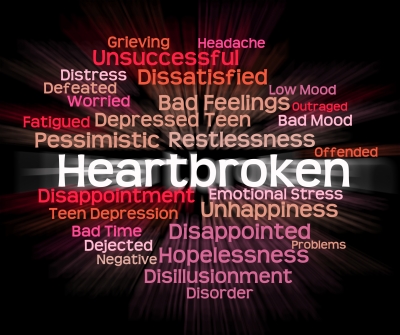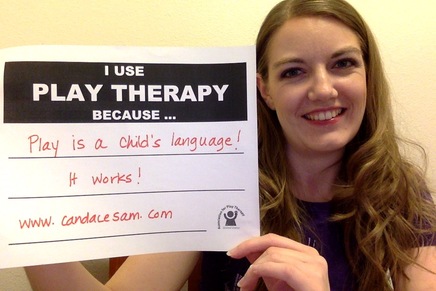|
Breakups! Something just about everybody has to deal with. Every once in a while you have those lucky few who end up marrying that one person and that is fantastic, but for the rest of us, breakups happen. And they are absolutely crushing no matter how old you are! They make us feel hopeless, lost, sad, angry and everywhere else in between. But learning to deal with breakups is important so it doesn't actually literally crush you.
1. Talk to someone. Wether it is a professional or a friend, just talk it out. Talk about everything including those deep dark feelings you're hiding and don't want to acknowledge. Acknowledge it so you can process it. Process your history and those feelings, because it was all real. 2. Self-care. I posted a self-care blog a few months ago. Read here. Take the time for yourself. Whether it is eating that bowl of ice cream, taking that bath, or binging on Netflix - do something that you enjoy and that can take your mind off of the grief for a bit. 3. Take care of your body. So it sounds hypocritical since in the previous note I just mentioned eating that bowl of ice cream, but eat comfort foods in moderation. Make sure to continue appropriate diets and exercise even 10 minutes a day is all you can find energy for. Along with eating and exercising, don't forget about basic hygiene. Remember to shower and wear clothes that make you feel good about yourself. 4. Remember the good things. Remember things you are grateful for or other positive things that you have in your life. Your significant other was probably pretty important, but they weren't everything. 5. Manage social media. I'm sure your social media pages are still attached to this person. Get someone to support you because this is hard but as much as you can, get rid of the things that still attach you to them. If you can't unfriend them, at least block them from content. Make sure you can't see their updates or notes. You don't need those little jabs or reminders about your breakup. Hanging on to some of these things will only make you hurt more and for longer. 6. Learn from it. While the split was probably pretty bad, one important thing is to think back about what you learned. What did you learn about yourself, what did you learn that was important in a relationship and what did you learn not to do. In every bad experience, there is also a learning experience. 7. The Don'ts. Don't contact them anymore. Reread the social media note. Really, don't contact them - meaning don't meet up again and have a 'last date' or 'last kiss' or any of that. That will only prolong it. Also don't talk bad about them or your relationship. That not necessary and while it might make you feel better for a second, in the long run it does more damage - to you, not the other person. Don't turn to unhealthy coping skills such as cutting, drugs, alcohol, or other reckless behaviors. 8. Plan for the future. There is still a future without this person. You still have goals and things you are going to accomplish in your life. Focus on this and making yourself better. Take that 'me' time to work through and continue to build your future. 9. Spend time with people. This should go under my "don'ts" but don't isolate. Isolating will be the worst for you. Isolating takes us away from healthy people and healthy activities. It's also ok to take that time for yourself, but make sure it isn't excessive and you aren't pushing others away. 10. Be Patient. We put our heart and souls into relationships. Because of this, we can't expect it to feel better after a week or two. Healing from a breakup and failed relationship will take time, so just be patient. There are plenty of resources out there on the internet or in the community whether you are in need of a quick pick-me-up article like this or something more intense such as therapy. But there is also another resource that is not only funny but truthful - an author Greg Behrendt wrote two brilliant books I highly recommend, not necessarily from a professional stand point, but from a personal stand point. "It's Called A Breakup Because It's Broken" and "He's Just Not That Into You." Or maybe even watching the movie "He's Just Not That Into You" so you can realize that at this time, you are not the exception, but in the future you will be. But never give up hope, we all have trials and difficult things that happen to us but we also always manage to get through them even when it seems like it's the end of the world at the time! We're celebrated Play Therapy this week! I thought I would share a little about what I know and why I do what I do! I know I've posted this video before through twitter and other social media outlets, but for those of you who have not watched it, I encourage you to do so and explore more about Play Therapy. It's not a traditional "talk therapy" but this is exactly why it works. “Play is the child’s language.” (Association of Play Therapy). Children learn and explore through play. I believe an appropriate way to process traumatic events or intense feelings is through this technique. Therapy in general is about meeting people where they are at. Children have not yet developed that level of processing or verbal skills to explain what they are feeling, but instead play it out. Play is where children are at. Divorce is a pretty serious issue. Children are likely to suffer and experience negative consequences due to divorce. Handling divorce and the situation carefully can build a child's resilience and ability to bounce back.
4 tips when you decide to tell your kids about divorce: 1. Plan ahead. Plan what you're going to tell your kids, how and possibly even where. This isn't something that you can just talk about at any time. As much as possible be united and talk with your co-parent. 2. Tell everyone together. There should be no secrets left out from other family members. Leaving one child out could possibly make them seem like it was their fault in some way. It can also lead to dividing the family even further. Answer all questions that they might ask and be curious about. This is a big change for kids. 3. Let kids react in their own way. Some kids might be upset immediately, some might even be happy that the fighting is over, or other kids might not have a reaction at all. This kind of information takes time to process and they will process it when they are ready. If they are angry, let them be angry and express their feelings rather than having to hold it in. 4. Make sure your kids know that it is not their fault. Tell them the truth. You will have to adapt language to appropriate developmental age, but keep it simple and honest. Again, remind them that parents don't get divorced from kids, only from each other. 4 tips for handling divorce and making the smoothest transition possible: 1. Afterwards be as much of a team as possible as parents. Take co-parenting classes and be as cooperative as you possibly can for your children. Fighting in front of them can have lasting consequences and involving them in any of these issues and making them side with one parent over another is completely inappropriate. Your kids want you both in their life as much as possible. They don't want to be messengers for the other parent and they certainly don't want to hear negative things about the other parent. This might be very difficult but will be completely worth it in the long run to decrease other negative effects of divorce on kids. 2. Create a regular routine immediately so your children can start to adjust to the changes. 3. When time has passed monitor your children. Listen to them with their thoughts and questions. Look for signs of depression afterwards such as behavioral issues and outbursts, grades falling, isolating, etc. Take them to a licensed therapist who can help them through this process. 4. Not only with your children, but take care of yourself. Kids are incredibly sensitive to their parents feelings and mental health. Even the youngest children are aware that something is wrong. Get help yourself as well! Find support of friends, take part in regular self-care to boost your mood and mental health or possibly see a licensed therapist as well. Resources: Mom and Dad Have Something to Tell You Children and Divorce 9 Things to Consider How Can Divorce Affect My Kids? Helping Kids Through Divorce Age by Age Guide to Children and Divorce Due to our busy lives, the first thing that becomes neglected is our own self-care. We have to get up early, take our kids to this place, possibly go to work, come back home and continue to work by cooking dinner and cleaning the house. By the time this is done it's already time to go to bed and prepare for the next day!
Results of skipping self-care. The less we take care of ourselves the easier it is to become stressed. Increased stress and/or fatigue leads to increased illnesses and sicknesses, headache, stomach problems, sleep difficulties, depression and anxiety. What is self-care exactly? Self-care is making sure to take care of your physical, mental, emotional well-being. Physical self-care could be things such as getting sleep, eating appropriately, exercise, getting proper medical attention and go to check-ups. Emotional and mental self-care could be journaling, relaxing, helping and serving others, or doing something else that you truly enjoy. Other ways of self-care might be turning your cell phone off for a short period of time, say no if you feel you are stretched too thin, spend time with supportive and uplifting people, and spend more time on leisure activities. How do I start to integrate this into my life? All self-care takes is about 15-30 minutes a day. I am sure that there are a few things that you could cut out of your day in order to start to take care of yourself. It's also important to remember that in order to take care of someone else, you have to take care of yourself first. Sometimes it's ok to be selfish and take care of number one first. Being the first week of January, most people are working on "New Year's Resolutions." Everyone wants to start the new year with a fresh start. Resolutions are difficult though and a lot of times, things fall flat - maybe even before January is over. Self-talk after this happens is "it's too late" and "it's over" and "why bother?"
Why do we do this? How do we break this cycle? It’s time to look at your resolutions. Maybe the first step might be to stop calling them resolutions and call them something else. I personally think resolutions becomes a daunting term that most of us know we will never complete. First, call them 'short term' or 'long term goals.' The second issue is having too many resolutions. We want to be perfect and we want it now! So we have these great things that we want to happen, but honestly it's too much. Break things down and for the first few months at least, just focus on three girls. Once you feel that these are things you have mastered, later in the year work on something else. Third step is to make your goal measurable. Make it so you can see the change as you go. Or break a larger goal down into achievable steps. This helps to make it seem less daunting or impossible. My goals are always too broad and I become easily overwhelmed by it. For example, my number one resolution is always to exercise. That’s a great goal “to exercise” but it doesn’t mean anything. What is my end result? How will I know when I’ve achieved this goal? My personal goal is to exercise at least 5 days a week. To make it more measurable, I’m first going to say “Exercise 15 minutes a day for one week.” That’s something small and entirely achievable. After I’ve achieved that I can increase it to 30 minutes a day and so forth and until I get into a better habit of exercising on a daily basis. Fourth step is to make sure to reward yourself for each of your small achievements on your way to your larger goal. So for my example of exercising, after I achieve a week’s worth of exercises I’m going to reward myself and celebrate any success no matter how small. We tend to not give ourselves enough credit for the things that we do achieve. Celebrating your successes will help keep you motivated to your larger goal. So what happens if I still can’t make my goal? If somehow I haven’t been able to achieve my smaller goal, this time around I’m not going to give up. I believe in second chances, and that includes for myself. Just start again, and remember to start small! One mistake or a bad week doesn’t mean failure. Just pick up right where you left off. My number one advice is just to believe in yourself and never give up. Good luck! Now that we are approaching the end of the holiday season, it is always important to remain grateful - especially for your mental health. Several sources, have identified why it is so important to have that attitude of gratitude and the number of benefits that it might lead to. I have listed 8 below.
1. Gratitude can help build relationships. Thanking people leads to more ongoing and longer-lasting relationships. It can also build more opportunities in a work environment. 2. Gratitude can improve physical health. According to an article in Forbes, gratitude is proven to decrease aches and pains. 3. Gratitude will always improve mental health. Gratitude can help you to manage your emotions by increasing happiness and decreasing feelings of depression or sadness. 4. Gratitude can help you sleep better. As seen in the same article in Forbes, spending 15 minutes before bed can can help you sleep longer and better. 5. Gratitude improves self-esteem and self-confidence. Focusing more on others and being more appreciative actually takes the focus off of yourself which increases and builds self-confidence. 6. Gratitude increases your lifespan. Due to all the physical and mental benefits, being more grateful can actually lengthen and add years to your life. 7. Gratitude can help build energy levels. People who are more grateful tend to have more energy, exercise more and give you that extra boost that you may be in need of. 8. Gratitude is linked with a better immune system. An article in Huffington Post identifies research through WebMD that states gratitude will help you be more healthier overall and help fight diseases. 10 Reasons Why Gratitude Is Healthy The 31 Benefits of Gratitude You Didn't Know About: How Gratitude Can Change Your Life 7 Scientifically Proven Benefits Of Gratitude That Will Motivate You To Give Thanks Year-Round According to a statistic done by the National Alliance on Mental Illness (NAMI), about 64% of people experience Holiday Blues at some point, 24% of them experience major Holiday Blues. It's ok to be that person! Just because it's the holidays, does not mean everything will be perfect. People experience Holiday Blues for several reasons: extra stress, loneliness because you are alone or unable to be with family, less sunlight, too much alcohol at parties, etc.
What are symptoms of Holiday Blues? It is very similar to depression, but more temporary. Symptoms can be fatigue, tension, frustration, feeling loneliness or isolation, sadness, a sense of loss, and a lack of energy. However short term, taking care of the Holiday Blues is incredibly important. Below is a list of 10 things you can do to manage your Holiday Blues. 1. Acknowledge your feelings! Don't ignore them. 1. Keep a regular routine. 2. Getting enough sleep. 3. Self-care and taking time for yourself whatever that may be. 4. Drink alcohol in moderation. 5. Exercise - such as taking a short walk. 6. Keep reasonable expectations for holiday activities like cooking, gifting, and partying. 7. Listen to music that boosts your mood. 8. Use relaxation techniques. 9. Reach out to appropriate supports that might be nearby or connect with those often that are too far. 10. Learn how to say no to things. Useful links below: Managing Holiday Blues - NAMI Holiday Stress Management - Mayo Clinic Holiday Blues - Huffington Post I think this video is absolutely brilliant. I really couldn't have said it any better myself. No matter how "damaged" or "ruined" we are, our self-worth is always going to be the same. But sometimes it doesn't feel like that. There are times where everybody will experience a low self confidence or self-esteem. Here are just 5 easy steps to build your self confidence next time you are feeling down.
1. Make a list of your strengths. This is one of the hardest questions that I always have to ask people when they are at their lowest, but no doubt everyone is able to find at least one strength every time I ask. Identify at least one, and if you're having trouble finding more talk to a trusted support person and ask them what they think your strengths are. 2. Challenge your negative thoughts. Frequent negative thoughts are "Nobody likes me" or "I don't do anything right." Really? Nobody? Anything? Those are all absolutes and absolutely untrue. Go back to your list, find your strengths and then again, identify those trusted supports because they will be there as well. 3. Dress up or in clothes that make you feel good. Maybe it's not always about dressing up, but feeling comfortable. Do what it is that will make you comfortable in your own skin. 4. Do something that you enjoy. Take a break and focus on yourself. What is it that makes you happy? A TV show, reading, cooking, talking a walk? That 15 or more minutes that you spend on yourself will do you wonders. 5. Do something nice for someone else. Believe it or not, turning our focus from ourselves to someone else is actually going to be the most helpful for you. It brings about true happiness and true feelings of self-worth. The joy of helping someone else cannot be faked and it is something that will last much longer than even some of the skills above. Health is the greatest possession. Contentment is the greatest treasure. Confidence is the greatest friend. —Lao Tzu With Halloween approaching I thought it might be appropriate to discuss the "masks" that we all tend to wear. We have several types of masks that we put on and switch out, normal and appropriate for certain environments but also some that might be hurtful to us. It's completely exhausting to pretend to be something you are not. One mask is when we are trying to be different than who we really are. I discussed this in my previous video blog. But there are a few other masks that I would like this blog to focus on. Masked happiness frequently covers up our sadness, anxiety, fears, and/or hopelessness. This is when our outside appearance and demeanor suggest that we are feeling happy and that things are going well. On the inside, our feelings are something entirely different and opposite. Another mask is that of anger or irritation that might also cover the same type of thing as well as our insecurities. Anger is a defense mechanism that prevents people from getting inside and likewise happiness can be just a facade of protection. It's hard to show our true selves and let others see our weaknesses. How will they respond? Will it be positive? Will it be more hurtful? Some of us might have experiences that have given us a bad example to go off of, and others are just afraid of what responses might happen. The best way to start taking off our masks? Starting to process your emotions that are underneath and that you are hiding from others. Whether that might be in therapy, or possibly with one support person whom you feel you can start developing a trusting relationship with. Never let these emotions go without some type of processing because building up over time can lead to other more severe mental health issues or break downs. You can also help others by being that one trusting person. Be who you want others to be for you. By doing that then hopefully you can even create a mutually trusting relationship between you and someone else. Be kind, be open, and be a good listener. "Masks" - Unknown Author
Don’t be fooled by the face I wear, for I wear a thousand masks, and none of them are me. Don’t be fooled. For God’s sake don’t be fooled. I give you the impression that I’m secure, that confidence is my name and coolness my game. And that I need no one. But don’t believe me. Beneath dwells the real me in confusion, in aloneness, in fear. That’s why I create a mask to hide behind, to shield me from the glance that knows, but such a glance is precisely my salvation. That is, if it’s followed by acceptance, if it’s followed by love. It’s the only thing that can liberate me from my own self-built prison walls. I’m afraid that deep down I’m nothing and that I’m just no good, and that you will reject me. And so begins the parade of masks. I idly chatter to you. I tell you everything that’s really nothing and nothing of what’s everything, of what’s crying within me. Please listen carefully and try to hear what I’m not saying. I’d really like to be genuine and spontaneous, and “me.” But you’ve got to help me. You’ve got to hold out your hand. Each time you’re kind and gentle, and encouraging, each time you try to understand because you really care, my heart begins to grown wings, feeble wings, but wings. With your sensitivity and sympathy, and your power of understanding, you alone can release me from my shallow world of uncertainty. It will not be easy for you. The nearer you approach me, the blinder I may strike back but I’m told that Love is stronger than strong walls, and in this lies my only hope. Please try to beat down these walls with firm hands, but gentle hands, for a child is very sensitive. Who am I, you may wonder. I am every man you meet, and also every woman that you meet, and I am you, also. |
Categories
All
Archives
April 2016
|









 RSS Feed
RSS Feed
